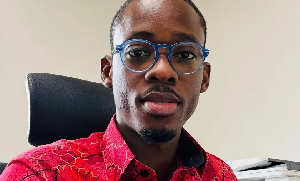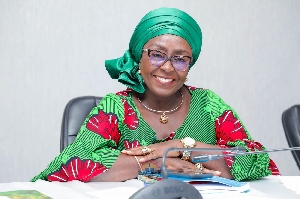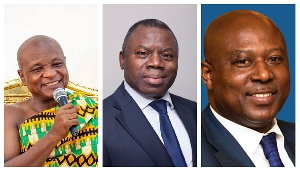There’s something undeniably powerful about the idea of a Youth Ministry. Something hopeful. It speaks to the heart of who we are as a nation and who we aspire to be. Because when we talk about Ghana’s youth, we’re talking about the lifeblood of this country—the ones who hustle, the ones who dream, and the ones who wake up every morning believing, despite the odds, that they can build a better future. Not just for themselves, but for all of us.
The announcement of a standalone Ministry of Youth by President Mahama has injected fresh energy into the national conversation about youth inclusion in governance.
Historically, Ghana has maintained a Ministry of Youth and Sports, yet paradoxically, youth issues have always played second fiddle to sports. The ministry has been primarily recognized for controversies surrounding sports administration, stadium contracts, and the Black Stars—rarely for addressing the systemic challenges facing young Ghanaians.
Ironically, those responsible for managing the sports portfolio have rarely been youth themselves, and neither have the ministers who led the combined ministry.
As young people, we’ve never truly felt that we had a ministry dedicated to our needs. That has to change.
The creation of a dedicated Ministry of Youth presents an opportunity to correct these historical imbalances. But it will only succeed if approached with clarity of purpose, strategic leadership, and a genuine commitment to delivering meaningful outcomes for Ghana’s youth.
Reimagining Youth Policy
This new ministry offers us a chance to reimagine what youth policy can look like—to move beyond buzzwords and focus on real, practical solutions.
President Mahama’s decision to create this ministry is commendable, but its success depends on the administration’s ability to move beyond symbolic gestures. This ministry must prioritize real, tangible results for Ghana’s young people.
Key Priorities for the Ministry
For the ministry to have a meaningful impact, it must focus on the following areas:
First, Youth Employment: it must collaborate with the private sector to create sustainable job opportunities and provide skills training aligned with industry needs.
Secondly, Actual Youth Representation is crucial for this ministry. The ministry must endeavor to establish platforms for young people to actively participate in policy-making and governance at all levels.
Undoubtedly, Education and Innovation will be a key pillar. Driving policies that enhance access to quality education and foster entrepreneurship, particularly in technology and the creative industries cannot be overemphasized.
Another area of Focus should be Youth Development Programs. Investing in mental health initiatives, mentorship programs, and leadership training to nurture well-rounded, capable youth will be crucial and generate palpable results in the medium to long term.
Leadership That Reflects the Youth
For this ministry to succeed, its leadership must reflect the demographic it serves. A young leader at the helm would signal a genuine commitment to youth empowerment, providing relatable and relevant leadership for the challenges today’s youth face. The appointment of yet another older politician would undermine the very essence of the ministry, perpetuating the disconnect between policy-makers and the youth.
It’s essential to avoid repeating history, where youth-focused programs are designed and implemented without meaningful input from young people themselves. Representation matters. This ministry has the potential to set a precedent by appointing someone who not only empathizes with the challenges facing the youth but also embodies the solutions they seek.
Striking a Balance Between Youth and Experience
While the appointment of a youthful minister is essential, the ministry’s entire structure must also strike a balance between youthful energy and seasoned experience. Imagine a chief director who understands digital transformation because they’ve lived it, or directors who have experienced unemployment firsthand and know how to build systems that create real jobs.
This isn’t about age for age’s sake; it’s about balance. A youthful minister, supported by a team that combines energy, creativity, and experience, can bring a fresh perspective to policy-making. Ghana’s youth need to see themselves reflected in the ministry’s leadership. They need to know their voices aren’t just being heard—they’re shaping the decisions that affect their lives.
Civil society and youth organizations must play an active role in scrutinizing the ministry’s activities and holding it accountable. Transparency and measurable outcomes will determine whether this ministry fulfills its promise or becomes another missed opportunity.
This ministry could be the beginning of something transformative. Or it could be just another chapter in a history of missed opportunities. The difference will come down to leadership, courage, and whether we’re ready to treat young people, not as a problem to solve, but as partners in progress.
Ghana’s youth aren’t asking for handouts; they’re asking for a chance. A chance to work hard, succeed, and shape their country’s future. The new Ministry of Youth is an opportunity to give them that chance.
Opinions of Thursday, 16 January 2025
Columnist: Kelvin Gyimah



















